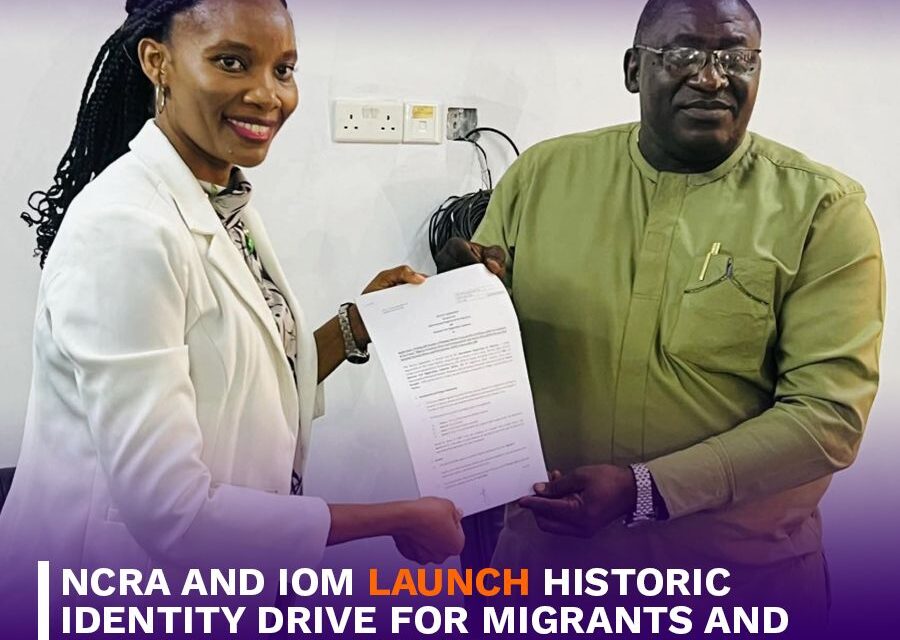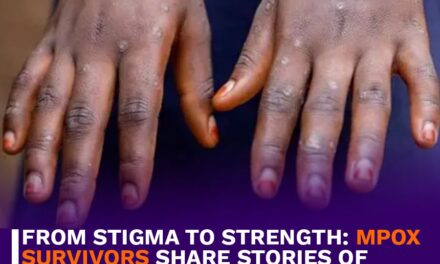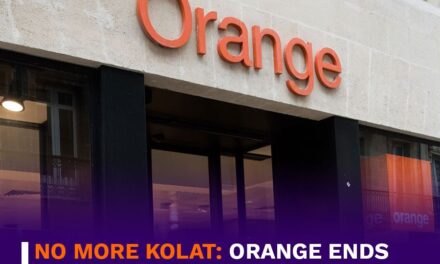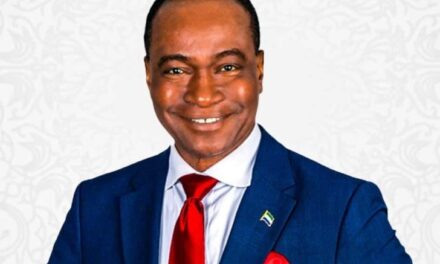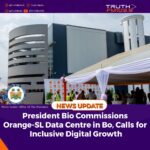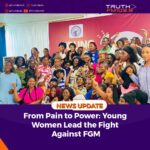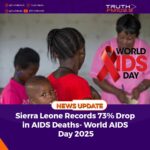Freetown, September 26th 2025— As a step toward inclusive governance and human rights protection, the National Civil Registration Authority (NCRA) and the International Organization for Migration (IOM) have signed a landmark agreement to provide legal identity documents to migrants and stateless persons across Sierra Leone.
The Memorandum of Understanding (MOU), signed on Thursday, September 25, 2025, at NCRA headquarters in Freetown, marks the culmination of nearly two years of strategic collaboration. The initiative will deliver national ID cards and birth certificates to 1,000 beneficiaries, 700 receiving IDs and 300 receiving birth certificates, affirming their legal existence and unlocking access to essential services.
“This MOU affirms our resolve to ensure that no one residing in Sierra Leone is left behind,” said NCRA Director General Mohamed Mubashir Massaquoi. “Without legal identity, people are excluded from education, healthcare, financial services, and social protection. We cannot afford to let anyone fall through the cracks.”
Dr. Pauline Macharia, IOM’s Officer in Charge in Sierra Leone, called the agreement a “significant milestone” in efforts to reintegrate returning migrants and protect stateless individuals. “We see women and children returning without any form of identification. This initiative restores their dignity and allows them to participate fully in society,” she said.
The project will deploy NCRA teams nationwide to ensure services reach vulnerable populations beyond Freetown. Officials confirmed that the 1,000-person target is only the beginning, with plans to scale up based on need. Standard operating procedures have been jointly developed to safeguard data privacy and ensure operational integrity.
The initiative aligns with Sierra Leone’s commitments under international conventions on statelessness and migration governance, and supports broader national development goals by improving civil registration and public service delivery.
“Our vision is clear,” Massaquoi added. “We are building an inclusive state where every vital event is recorded, and every person is counted and cared for.”
The Ministry of Internal Affairs has commended the project, reaffirming the government’s commitment to non-discrimination and equal access to services regardless of migration status, gender, or physical ability.
As African nations confront the challenges of migration and identity exclusion, Sierra Leone’s model, rooted in rights, technology, and interagency coordination, offers a bold blueprint for inclusive nation-building.
